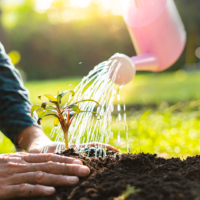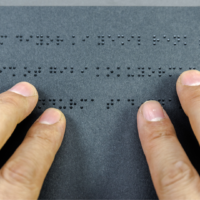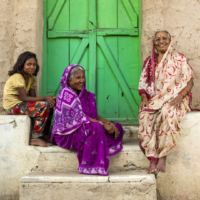MENTAL health is an invisible health concern that affects millions of people yet is frequently overlooked and underacknowledged. Did you know that mental health disorders make up 15% of total diseases globally? According to the World Health Organization (WHO), “one in four people in the world will be affected by mental or neurological disorders at some point in their lives … [and] nearly two-thirds of people with a known mental disorder never seek help from a health professional”.
With a current population of approximately 7.7billion people globally, that’s over 1billion people living with some level of mental/neurological health problem.
A National Institute of Mental Health and Neurosciences report indicates that only one-fifth of Indians living with a mental illness receive necessary medical support within a year of falling ill due to inadequate health infrastructure and stigma.
People suffering from mental health issues don’t wear obvious signs of their trauma, like a person with scars or a wheelchair. However, that doesn’t make their health problems any less real or valid. Stress, anxiety, depression, and other diagnosed or undiagnosed disorders can result in suicide – the average suicide rate in India is 10.9 out of 1 lakh, with the majority of people who commit suicide younger than 44 years old.
Furthermore, pretending that mental health problems don’t exist harms society as a whole. Mental health conditions can lead to a number of issues that have an impact on others outside of the person suffering from the illness. WHO estimates that between 2012 and 2030 India’s economy will lose US $1.03trillion due to mental health conditions. Also, people suffering from untreated mental illnesses and their families are far more likely to be affected by poverty and inequality between different population groups.
Normalising discussions around mental health and separating the illness from the person (read: not blaming the sufferer for their disease) can help people understand what they are feeling, de-stigmatise disorders that many people suffer from but are too afraid to speak about collectively, and explain therapy for those who haven’t accessed the treatment before.
The growth of the self-help and self-care industries has helped improve the perception that it’s ok for people to take time to care for themselves and embraced the idea that everyone can work to better themselves.
Self-help exploded in the 1980s and gave rise to a full-blown industry of books, cassette tapes, TV shows, gurus, life coaches, workshops, seminars, and retreats with Tony Robbins and Oprah Winfrey leading the charge.
However, in the digital age, we now see millennials turning to social media for guidance. We’re happy to report that therapists are embracing the shift to new mediums, particularly Instagram, to reach new clients, as well as people who may not be able to afford their services. (WHO reports that the cost of mental health problems in developed countries is estimated to be between 3% and 4% of GNP!!)
Everyone agrees, Instagram is not a replacement for therapy. However, it is a way that licensed therapists, psychologists, and psychiatrists can help dispel misinformation, fear, and general nervousness surrounding psychotherapy.
They provide context for issues that many face but may not completely understand and make “pithy pronouncements about embracing imperfection, self-care, ‘growth mindset’, mothering oneself, imposter syndrome and trauma”. As one therapist put it, “It’s all about starting the conversation” as cost is still prohibitive for people to access treatment as well as a lack of availability of carers.
This past March, “the Mental Healthcare Act 2017 came into effect stating that it is now a right of every Indian citizen to have access to unprejudiced mental healthcare in India”.
However, WHO reports that just “43 government-funded hospitals in India cater to [the] estimated 70million plus people with mental disorders. For every million population, there are three psychiatrists and even fewer psychologists.”
Therapists on IG aim to “provide resources, tools, insights, reminders, community, and support for people who are not in therapy, for people figuring out how to access therapy, and for people in therapy”. A sort of “Insta-psychoeducation”. Considering how a number of studies state that time spent on social media can be detrimental to one’s mental health, this can only be a good shift for IG.
Fortunately, rather than shunning doctors’ and therapists’ embrace of the platform in a new way, the establishment seems to be encouraging it. Psychology Today posted an article just this past week extolling the benefits of therapists and potential clients using IG.
What to learn more? Check out these IG accounts:
-by Micah Branaman-Sharma
Discover more from give.do
Subscribe to get the latest posts to your email.



